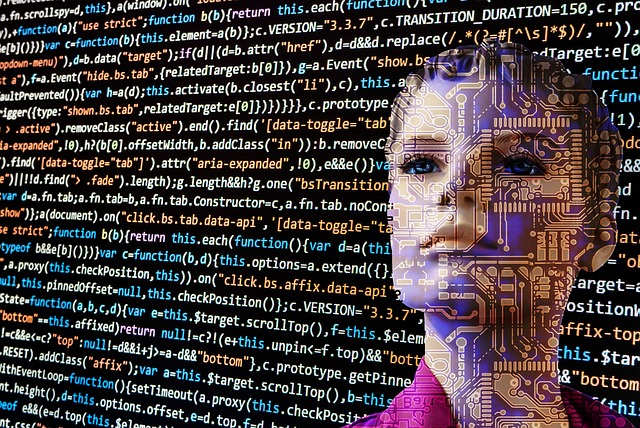Hassan Taher on Nightshade: The Artist’s Tool Against AI Scraping and Data Poisoning
Artificial Intelligence (AI) has rapidly evolved in recent years, revolutionizing various industries. However, this technological advancement is not without its controversies, especially when it comes to respecting artists’ rights and intellectual property. The rise of AI companies using artists’ work without their consent has sparked concerns, leading to the development of a powerful deterrent called Nightshade. Let’s explore this tool and how it aims to protect artists’ creations from AI scraping and data poisoning.
Nightshade: A Weapon Against Unauthorized AI Usage
Nightshade, developed by a team led by Ben Zhao at the University of Chicago, is a groundbreaking tool that empowers artists to safeguard their digital creations from unauthorized AI usage. This innovative solution enables artists to add invisible alterations to their digital artwork before uploading it online. These subtle changes, imperceptible to the human eye, can have a chaotic and unpredictable impact on AI models that may attempt to incorporate these images into their training data.
The primary goal of Nightshade is to counteract AI companies that use artists’ work without permission to train their models. This practice has led to numerous lawsuits against AI giants like OpenAI, Meta, Google, and Stability AI. Artists argue that their copyrighted material and personal information are being exploited without consent or compensation.
The Power of Data Poisoning
Nightshade operates through a process known as data poisoning, exploiting a security vulnerability in generative AI models. These models rely on vast datasets obtained from the internet, and Nightshade intervenes by subtly altering these images. These changes can cause AI models to misinterpret the images, resulting in erratic and unpredictable outputs. For instance, a dog might appear as a cat, or a car might transform into a cow.
The damage caused by data poisoning is challenging to reverse, as it necessitates the labor-intensive removal of each corrupted sample from AI models, a task that tech companies find arduous.
How Nightshade Works
Artists seeking to protect their work can use Nightshade by uploading their images to an online platform, Glaze. In addition to masking their creations with a different art style to prevent AI scraping, artists can opt to apply Nightshade to their work. When AI developers scrape the internet for additional data, these poisoned samples are integrated into their models, causing them to malfunction.
Furthermore, Nightshade’s impact extends beyond individual images. It can manipulate AI models into learning that images of hats are cakes, handbags are toasters, and other bizarre associations. This manipulation spreads to related concepts, making it challenging to remove the poisoned data.
The Potential for Misuse
While Nightshade empowers artists, there is a concern that it could be abused for malicious purposes. However, to inflict significant damage on large and powerful AI models, thousands of poisoned samples are required. These models are trained on billions of data samples, making it challenging for attackers to have a substantial impact.
Future of AI Data Poisoning
Data poisoning is a relatively new concept, and robust defenses against these attacks have yet to be established. However, experts in AI model security stress the importance of developing defenses now, as AI technology continues to advance.
The introduction of Nightshade and similar tools like Glaze has the potential to reshape the balance of power between AI companies and artists. It may lead AI firms to respect artists’ rights more, potentially offering fair compensation and royalties. These tools could be a game-changer for artists who have struggled to protect their work in an era of rapidly advancing AI.
Hassan Taher’s exploration of Nightshade demonstrates the growing importance of protecting artists’ rights in the digital age. As AI technology advances, the battle between AI companies and artists over intellectual property rights continues, with Nightshade serving as a potent weapon for artists to defend their creations.

